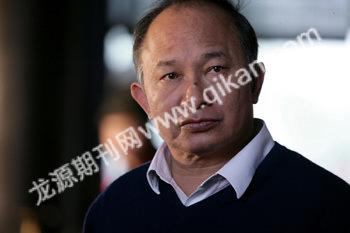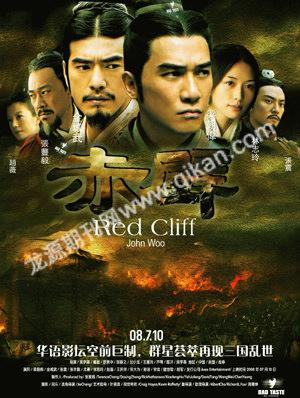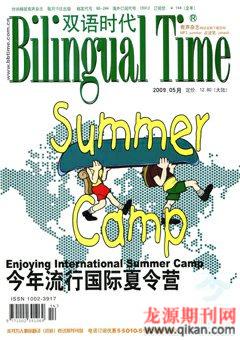西方电影里的中国巨人:导演篇
1895年12月28日法国奥古斯特•卢米埃尔和路易•卢米埃尔兄弟在巴黎卡普辛路14号大咖啡馆的地下室,第一次播放了自己拍摄的《火车到站》、《水浇园丁》、《工厂的大门》等十余部短片,从此,这天就成为电影的诞生日。而现在,电影已经成为人们生活中的一部分,满足精神和文化上的双重享受。丹尼尔•贝尔曾经说过“我坚信,当代文化正逐渐成为视觉文化……这是人们从19世纪中叶开始经历的那种地理和社会的流动以及应运而产生的一种新美学。”从本期开始,《电影传奇》就带你一起在浮光掠影中感受电影文化的魅力。
编者按:在电影以其独特的方式和魅力征服世界时,每一个国家和民族也都在通过这种将资本和媒体技术高度结合的方式向世界展示自己,一批批优秀的导演和演员以及其他工作人员在文化传承中都留下了自己的痕迹,光影唇齿间挥之不去的是惊鸿一瞥的感叹。从5月开始我们将带领大家一起来回顾所有在西方电影中谱写下自己篇章的中国导演和演员们。
Modern Chinese cinema began in the 1920s and 30s, when Shanghai became the centre of a thriving film industry, producing pictures which, although they never caught on in the West, became hits throughout Asia. A brief post-war revival in the 40s produced another crop of remarkable movies, as well as a group of talented directors – many of whom were to perish twenty years later.
当上海成为新兴电影产业的中心时,现代中国电影业在上世纪二三十年代开始兴起,并制作了一系列影片,虽然这些影片没有在西方流行,却在亚洲受到相当程度的欢迎。在四十年代战后也涌现出了一批好电影以及优秀的导演,但大多数导演在二十年后都相继去世。
The creative charge of Chinese-language filmmaking, meanwhile, had moved to Hong Kong and Taiwan, where new talents emerged in the 70s and 80s. The frenetic action style developed in Hong Kong cinema, in particular, became highly influential in Hollywood. Action movies such as Hard Boiled and The Killer had a strong impact on young Western filmmakers like Quentin Tarantino, and by the mid-90s, many of the characteristics of Hong Kong action movies had been adapted into Western cinema. These included slow-motion shooting scenes, double-wielded pistols, and a more brutal, vicious style of filming hand-to-hand combat.
这时极具创造力的华语电影向香港和台湾转移,七八十年代那里涌现了一批杰出的电影人。尤其是在香港兴起的狂热武侠片极大地影响了好莱坞。动作片像《辣手神探》和《喋血双雄》更是影响了像昆汀•塔伦蒂诺这样的年轻西方导演,到九十年代中期,很多香港动作片中的元素也被西方电影广泛采用。这包括慢镜头的枪战场景,双手持枪的动作场面,以及残忍血腥的肉搏战拍摄手法。
Meanwhile a new generation of mainland filmmakers emerged in the more open atmosphere of the 80s and 90s. Many of their films had an easier time getting an audience overseas than at home.The so-called Fifth Generation, many of whom were graduates of the Beijing Film School class of 82, made films that won praise – and sometimes censure – at home, and also gathered plaudits overseas. Nowadays Chinese-language cinema is becoming more and more internationalized; Chinese films are consistently box office smashes throughout Asia, and increasingly successful in the West. This month we look at some of the directors responsible for these successes, whose movies have proven hits not only in the Sinosphere, but throughout the world.
同时,八九十年代中国大陆在更为开放的环境下也产生了一批电影人。相比较于国内观众,他们的很多电影更易于被海外观众所接受。被称为“第五代”的导演大多毕业于北京电影学院82届,他们制作的电影在国内屡屡获奖,但有时也饱受争议,在国际上赢得了不少掌声。如今华语电影越来越国际化,在亚洲的票房也是居高不下,在西方也越来越成功。本月我们就来看一些取得这些成就的导演们,他们的影片不仅仅红遍中国,更席卷了全世界。
Ang Lee
导演李安:东成西就

Ang Lee is undoubtedly the most famous Chinese director overseas.His talent seems to have few limits, as he is capable of switching styles and genres with every movie, although whatever his subject, from 70s infidelity to giant green monsters, he brings an introspective touch to it, as well as a magnificent sense of scenery and landscape. A native of Taiwan but a graduate of New Yorks film school, he was unable to find work at home for several years, and was supported by his wife Jane Lin, a molecular biologist.
李安无疑是国际上最出名的华人导演。他的才华不拘一格,无论主题是什么,从七十年代的情感不忠到绿巨人,他能够在任何一部电影中将各种风格和类型互相交融,给它抹上一笔发人深省的色彩,还有电影里的风光和景色都异常壮美。李安是台湾人,毕业于纽约大学的电影学院,毕业后有好几年都找不到工作而闲在家中,生活由妻子林惠嘉(分子生物学家)来支撑。
This family arrangement, considered rather embarrassing in Taiwans patriarchal culture, led him to observe marriage and society closely. Although heterosexual, Lee has always been highly interested in sexual outsiders like homosexuals. Taiwan and Hong Kong are both more accepting of homosexuality than the mainland, but traditional Chinese values still emphasise marriage and the production of children, and there are frequent generational clashes. Lees interests eventually produced the brilliant family drama-comedy Eat, Drink, Man, Woman (1994), about a traditional Taiwanese father and master chef trying to cope with the complicated romances of his three daughters, and The Wedding Banquet (1993), a raucous gay comedy. His move to Hollywood produced a strong success with Sense and Sensibility (1995), where he showed that his keen eye for the social and romantic mores of Taiwan could easily be adapted to take in those of Jane Austens Georgian England. The Ice Storm (1997) turned his gaze to 70s America, and the cool, cruel world of suburban wife-swapping.

从台湾以男性为主的传统文化来看,这个家庭的分工非常尴尬,这使得李安开始密切观察婚姻和社会。尽管自己是一个异性恋,李安一直以圈外人的身份高度关注同性恋群体。台湾和香港对同性恋的态度比大陆要开放,但是传统的中国文化依旧强调婚姻以及生儿育女,隔代冲突屡见不鲜。李安的兴趣最终促成他在1994年制作了优秀的家庭喜剧《饮食男女》,该片讲述了一位身为台湾大厨的父亲如何努力去解决与自己三个女儿的复杂关系的浪漫故事,而1993年拍摄的《喜宴》则是一部喧闹的同志电影。进入好莱坞的大门后他在1995年执导了《理智与情感》并取得巨大成功,其中他对台湾社会以及风俗民情的敏锐观察力也同样应用到简•奥斯丁所处的乔治亚时代的英格兰。而在1997年的《冰风暴》中他又将视线转移到七十年代的美国,那个在城郊进行换妻行为的残忍无情的世界。
His first massive hit in the West was a film that introduced a new genre term, wuxia, to American and European audiences. Crouching Tiger, Hidden Dragon (2000) featured a gallery of stars from throughout the Chinese world – though poor Chow Yun-Fat, a Cantonese speaker, was notably struggling with his Mandarin at points! The luxurious, romantic fantasy of a Qing world where great martial artists compete over love and vengeance was a box office smash, grossed over $200 million worldwide, and opened the way for other Chinese wuxia films, such as Zhang Yimous Hero.
他对西方电影的第一次冲击就是向欧美观众介绍了一种全新的电影——武侠。2000年《卧虎藏龙》云集了顶级华人巨星——其中可怜的、说粤语的周润发努力咬准普通话发音!这部影片讲述了清朝一些武侠高手的爱恨情仇,在票房上大获全胜,全球累计2亿美元,并为其它华语武侠电影开创了道路,比如张艺谋的《英雄》。
Lee went on to direct The Hulk (2003), based on the famous Marvel comics hero who transforms into a gigantic raging green monster when angry. Lees slow-paced film, which framed shots as comic-book panels, was a box office failure, though remains a favourite of some critics. His next movie, Brokeback Mountain (2005), adapted from a short story by Annie Proulx about homosexual love and longing in the harsh Wyoming mountains, was a massive success, coining a new slang term for gay men in China and winning Oscars aplenty, including a first Best Director for Lee. Lust, Caution (2007) turned to heterosexual passions in 30s Shanghai, with controversially explicit sex scenes. Now, Lee has returned to America, where hes working on a movie about a gay man at the famous Woodstock festival.
随后,李安根据著名的奇迹公司漫画英雄——在生气的时候会变成巨大的绿色怪物,拍摄了电影《绿巨人》(2003)。李安这部影片节奏缓慢,其中多画面展现射击的场景如同漫画书中一样,票房惨淡,但也获得一些好评。他的下一部电影《断背山》(2005)改编自安妮•普劳克丝关于发生在荒芜的怀俄明州山区同性爱情故事的短篇小说,获得了巨大成功,在中国谱写了一个全新的同志定义,并在奥斯卡上大获全胜,为李安赢得了第一个奥斯卡最佳导演奖。2007年的《色戒》又转而讲述了发生在三十年代旧上海的异性爱情故事,其中包括饱受争议的情色场面。现在,李安已经回到美国,并开始制作一部关于著名的伍德斯托克音乐节的同志故事。
No matter what the subject, the relationships between the characters are paramount – even in The Hulk, scenes involving the eponymous monstrous hero throwing tanks around the desert play second fiddle to the intense psycho-drama between the protagonist and his maniac father, culminating in an epic elemental battle between the two. Equally, in Crouching Tiger, Hidden Dragon, the beautifully filmed fight scenes are expressions of the feelings between the characters, not just action for actions sake. Sex in Lust, Caution and food in Eat, Drink, Man, Woman serve a similar purpose; fascinating and delicious in their own right, but also a vehicle for emotions of all kinds.Lee is one of the true masters of the universal languages of cinema and humanity.
无论电影的主题是什么,角色间的关系是最重要的——即使在《绿巨人》中,这种类似于巨大的怪物英雄将坦克扔在沙漠中的打斗场景与他和疯狂的父亲之间紧张的心理变化描写相比仍相形见拙,后者以二人激烈的打斗而结束。同样的,《卧虎藏龙》中如诗如画的打斗场景也是一种角色的情感表达,并不是为了打斗而打斗。《色戒》里面的性爱场面以及《饮食男女》里面的美食也都是为了同样的目的;而且性爱场面本就很迷人,食物本就很美味,但也可以成为情感的载体。李安的确是一位使用电影以及人类世界语的大师。
John Woo
导演吴宇森:暴力美学

Perhaps surprisingly for a director so known for his beautifully choreographed violence, John Woo is a devout Christian and wanted to be a Christian minister when he was young. His two main sources of comfort in an impoverished Hong Kong childhood were the church and the cinema; eventually he turned to the second, becoming one of the citys most famous filmmakers, but Christian imagery permeates his works.Churches, crosses, and doves are particularly notable images in all of his movies, and they are redolent with images of sacrifice and redemption.
以暴力美学而闻名的导演吴宇森是一名挚诚的基督徒,这一点可能让人感到意外,在年少时他曾想当一名神父。他在香港贫穷的童年中有两个寻求慰藉的地方,一个是教堂,另一个是电影院,最终他选择了后者,并成为香港最著名的导演之一,但是基督画面却始终贯穿在他的作品之中。教堂、十字架还有鸽子,这些都是他所有电影中最出名的场景,它们让人联想起牺牲和救赎。
Woo drew his action choreography from many sources, but especially from the movies of the great Japanese director Akira Kurosawa; the closing battle of The Seven Samurai was a great inspiration for him. His own style defined the Heroic Bloodshed genre of Hong Kong cinema, where huge, rapid action scenes are mixed with high-octane melodrama. In The Killer, the assassin hero is trying to raise the money to save the eyesight of a lounge singer he accidentally blinded.The plot could be straight out of the 30s, but the beautifully filmed violence, in which Chow Yun Fat – Woos favourite star – mows down dozens of mooks, is all Woos.
吴宇森的动作设计来自多方面,尤其是伟大的日本导演黑泽明,电影《七武士》结尾的打斗场景极大地感染了他。他的个人电影定义了香港的“血腥英雄”类型电影,其中庞大、快速的打斗场面和紧张刺激的剧情水乳交融。《喋血双雄》中,杀手努力筹钱去救治他误伤而导致失明的歌手。这种剧情和三十年代的没有什么区别,但是却将暴力拍得异常美丽,其中吴宇森最爱的明星周润发摧毁无数本书的镜头,这些都是吴宇森的创意。
Woos American films have not been as successful. After moving to the United States in 1993, his initial movies Hard Target and Broken Arrow were lacklustre compared to his Hong Kong works.It was only with 1997s Face Off that he really recaptured the over-the-top energy that made his previous movies great. His Hong Kong works are classics, though. A Better Tomorrow (1986) The Killer (1989),and Hard-Boiled (1992) made Hong Kong action cinema famous, but the relative flop Bullet in the Head (1990) is perhaps Woos best work. It deals with three young friends living semi-criminal lives in 60s Hong Kong, who set out to war-torn Vietnam to make their fortunes, and end up being caught between the mafia, the Americans, and the Vietcong. Gruellingly emotional, with fantastic fight and riot scenes, it was too much for Hong Kong audiences of the day. His Red Cliff, a Chinese historical epic, has been very successful in the Sinosphere, but, with hours of complicated scenes, largely turned off foreign audiences.
吴宇森的美国电影却没有这么成功。1993年他搬去美国,最初的《终极标靶》和《断箭》平淡无奇,无法和他的香港电影相媲美。而1997年的《变脸》他才真正重新抓住了造就他前期巨大成功的充沛精力。但他的香港电影都堪称经典。《英雄本色》(1986)、《喋血双雄》(1989)和《辣手神探》(1992)使得香港动作片声名显赫,而《喋血街头》(1990)可能是吴宇森最好的作品,它描述了六十年代香港生活在贫民区的三个年轻人前往饱受战争摧残的越南淘金的故事,最终被黑手党、美国人还有越共给抓住。紧张刺激的情感加上激烈的打斗场面,这对于当时的香港观众来说已经足够了。他的史诗大片《赤壁》在国际上也获得了很大的成功,但是连续数小时的复杂情节让外国观众感到厌烦。
Zhang Yimou
导演张艺谋:中国电影的旗帜

The first mainland director to become famous overseas, Zhang Yimous works are complicated, multi-layered explorations of Chinese history. His own education was delayed by the Cultural Revolution, and he wasnt able to graduate from film school until 1982, when he was already in his early 30s. His considerable talents were turned, first of all, to the warlord era of the 1920s in the internationally acclaimed Raise the Red Lantern (1991), adapted from a novel by Su Tong, which explores the patriarchy and authoritarianism of Chinese culture through the tragic stories of concubines in a warlords household. To Live (1994), another novel adaptation, concentrated on later Chinese history and was also praised worldwide, though less fulsomely than the earlier movie.
Hero (2002) was a massive success in Asia, and did well in the USA as well, but was criticised for seeming to approve of totalitarianism, in the shape of the notoriously bloody-handed Shi Huang Di and justify government excesses; many accused Zhang of selling out. The plot supports many readings, including ones which subvert its ostensible messages of authoritarianism and nationalism. Whatever your feelings about its message, there was nothing but praise for its incredible battle scenes.
作为第一位扬名海外的大陆导演,张艺谋的作品多是对中国历史进行复杂和多层次的探讨。由于文化大革命他的上学时间被耽搁,直到1982年才在北京电影学院毕业,那时他已经30出头了。最初,他便施展自己的才华拍摄了电影《大红灯笼高高挂》(1991),这部根据苏童的小说改编而成的影片讲述了上个世纪二十年军阀时期的故事,通过发生在一个军阀大家族里的小妾们的悲剧来探讨中国文化中的父权和独裁现象。《活着》(1994)是另一部根据小说改编的电影,着重讲述了近代中国历史,尽管没有和早期电影一样大红大紫,也受到了世界普遍的好评。电影《英雄》在亚洲获得了巨大的成功,在美国反响也很好,但却遭到了一些反集权主义者的批判,他们认为这部影片是在为臭名昭著、满手鲜血的秦始皇以及政府的集权主义做辩护;也有人指责张艺谋“卖国”。电影情节有多种阐述,包括颠覆其表面上所传达的独裁主义和民族主义。无论对它的主旨的感受如何,对于电影宏大的打斗场面大家都是赞不绝口。
House of Flying Daggers (2004) and Curse of the Golden Flower (2006) won much less praise, although some admired their melodrama, beautiful set designs, and intense emotional feelings, the plots were far too complicated for most audiences to follow! Zhangs most recent masterpiece, however, was not a film, but the coordination and design of the splendid opening and closing ceremonies of the Beijing Olympics; watched by two billion people worldwide, it was even more of a success than his movies!
《十面埋伏》(2004)和《满城尽带黄金甲》(2006)反响平平,尽管有人称赞它们的情节、华丽的场景设计以及强烈的情感,但对于大多数观众来说剧情太复杂以至于无法理解。张艺谋最近的杰作不是电影,而是盛大的北京奥运会的开幕式和闭幕式,全世界共有20亿观众观看了这场盛会,这比他的电影更成功。
So, that's the big three - the Chinese directors whose work has made the most impact overseas.Next month we're going to look at some filmmakers whose films have been smaller hits, but who represent a new generation of Chinese movie making that will undoubtedly find its place in world cinema in the next decade.
那么这就是其作品在国际上拥有巨大影响力的三位华人导演。下个月我们将继续来看看一些影响力稍小的导演,但他们却代表了新一代的中国电影制作人,毫无疑问,他们在下一个十年会在世界电影中找到属于自己的一席之位。
Notes
1. catch on
意为“变得流行、理解”。
例句:The new song caught on really quickly.
这首新歌真的流行得很快。
Would you mind repeating that? I didn't quite catch on.
请再说一遍好吗?我没听懂。
2. hand-to-hand
意为“极接近的、白刃战的”。
例句:Soldiers seldom fight hand to hand in modern warfare.
在现代战役中士兵们很少短兵相接。
3. generational clashes
意为“隔代冲突”,即指发生在不同年代的人之间的矛盾和冲突,比如父母和孩子。
4. raucous
该词语最常见的意思是“粗糙的、沙哑的”。在这里指的是“very loud, cheerful, chaotic
like a big party”。
5. high-octane
意为“强烈的、极新颖的、高能量的”。
6. turn off
该词组有多种意思“关掉;拐弯;完成;(使某人)感到厌烦;解雇, 辞退”,在文中指的是“(使某人)感到厌烦”。
例句:The tap won't turn off and there is water all over the floor.
水龙头关不上,满地都是水。
Half the viewers turned off when the speaker began talking about pop music.
讲话人开始谈起流行音乐时,一半观众兴味索然。
Links
Chinese Directors
中国导演
现在经常能听到第五代导演,第六代导演这样的话语,那么你知道他们的由来吗?他们又都有哪些特点?这些群体不仅见证了中国电影的发展,他们的作品更记录了中国社会文化以及思想和精神面貌近百年来的演变历程。
第一代导演——拓荒者
第一代导演活动的时间大体上是在上世纪初到20年代末,是中国电影的先驱。他们在拍摄条件非常简陋、艰苦,又缺乏经验的条件下,创作了中国第一批故事片。这些影片中的一部分是受了“五四”新文化运动的影响,不同程度上表现出一些反封建的民主思想。但是,从艺术技巧而言,他们往往用传统的戏剧观念来处理电影,拍摄时沿用戏剧舞台的一套办法,摄影机基本固定。其中成就最大的是张石川和郑正秋。中国第一部短故事片《难夫难妻》、第一部长故事片《黑籍冤魂》、第一部有声故事片《歌女红牡丹》,第一部武侠片《火烧红莲寺》,以及早期最有影响的《孤儿救祖记》等都出自他们两人之手。
第二代导演——首创辉煌
第二代导演主要活动时间是在三四十年代,部分导演一直到五六十年,甚至八十年代,仍工作在电影岗位上。由他们开始,中国电影就思想内容而言,开始真正从单纯的娱乐中解放出来,开始比较深入地反映社会生活,从娱乐中发挥社会功能。在艺术上,这代导演最大的特点是写实主义,同时,他们注意把写实和电影化结合起来,开始逐渐掌握电影艺术的基本规律。其中成就最大的是蔡楚生、郑君里、费穆、吴永刚、桑弧、汤晓丹。这个时期,中国的电影表演艺术也属于由萌芽到起步阶段。
第三代导演——大放异彩
建国后走上影坛的导演艺术家被称为中国电影导演的第三代。这一代导演主要有成荫、谢铁骊、水华、崔嵬、凌子风、谢晋、王炎、郭维、李俊、于彦夫、鲁韧、王苹、林农等,他们遵循现实主义原则表现生活的本质,深入展现矛盾冲突,以及在民族风格、地方特色、艺术意蕴等方面,都进行了十分有益的探索。
第四代导演——探索奋斗
第四代导演的主体是六十年代电影学院的毕业生,还包括在同一时期自学成材的人。他们虽然学艺于六十年代,由于种种历史的原因,其艺术才华到1977年以后才发挥出来。他们以开放的视野,吸收新鲜的艺术经验,不懈地探索艺术的特性,承上启下,力图用新观念来改造和发展中国电影。他们提出中国电影要“丢掉戏剧的拐杖”,打破戏剧式结构;提倡纪实性,追求质朴、自然的风格和开放式的结构;注重主题与人物的意义性和从生活中,从凡人小事中去开掘社会和人生的哲理。其中有代表性的人物是吴贻弓、吴天明、张暖忻、黄健中、滕文骥。
第五代导演——承前启后
第五代导演是指八十年代从北京电影学院毕业的年轻导演。这批导演在少年时代卷入了中国社会大动荡的漩涡中,有的下过乡,有的当过兵,经受了10年浩劫的磨难。在改革开放的年代,他们接受专业训练,带着创新的激情走上影坛。他们对新的思想、新的艺术手法,特别敏锐,力图在每一部影片中寻找新的角度。他们强烈渴望通过影片探索民族文化的历史和民族心理的结构。在选材、叙事、刻划人物、镜头运用、画面处理等方面,都力求标新立异。第五代导演的作品主观性、象征性、寓意性特别强烈。当他们一旦作为一个群体的力量出现时,尽管人数不多,却给中国影坛造成了巨大的冲击波。主要代表人物有陈凯歌、张艺谋、吴子牛、田壮壮、黄建新。
第六代导演——抗拒归纳
第六代导演一般指生于二十世纪六十年代后期和七十年代中后期,在八十年代末进入北京电影学院、中央戏剧学院等高等院校,接受过正规影视教育的青年导演,其中还有一部分热爱电影的自由职业者。代表导演包括张元、王小帅、娄烨、路学长、管虎、贾樟柯等。这一群体成长于经济复苏的改革开放年代,此时正值中国建设市场经济初期,他们在相对开放多元的文化背景下接受了系统的教育,并接触到大量国外各种电影理论。第六代亲身感受到经济体制的转轨给中国的社会关系、人际关系、家庭关系所带来的重大变动,经历了电影从神圣的艺术走入寻常生活,降格为一种文化产品供人们消费的无奈,观念和作品内容都发生了巨大变化,然而他们的影片没有通过制造幻觉的快感向市场妥协,而是更多地关注那些出于禁忌而“不可言说”的社会现实,更显出直面现实的冷酷。在题材选取上,他们关注当下都市、边缘人物,小偷、妓女、无业青年这些边缘人频繁在影片中亮相;在叙事策略上,他们常常在剧中人物身上融入自己的经历,或多或少带有自传色彩;在影像风格上,他们强调真实的光线、色彩和声音,大量运用长镜头,形成纪实风格。他们注重以电影为媒介来考察当代都市普通/边缘人的生活状态,新一代青年在历史转型时期的迷茫、困惑和无所适从在他们的镜头下被真实地记录下来。导演们似乎都极力反对第六代这个集体冠名,他们要么极度追求影象本体,要么偏执于写实形态,要么坚定的走在商业路线上,几乎难以像第五代那样整体构建电影精神的统一面貌,所以,他们是抗拒归纳的一代。

